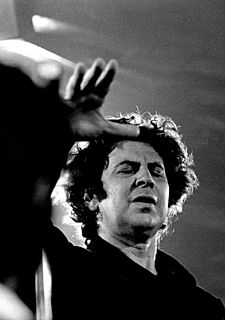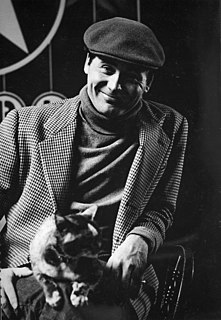A Quote by Mikis Theodorakis
My work is based upon contemporary Greek poetry - poetry which is concerned with the problems of today's civilization and, of course, with simple personal feelings of love, nostalgia, etc.
Related Quotes
I'm educating myself more about world poetry. I know a lot about contemporary American poetry, so I felt I needed to learn more about figures like Borges, Akhmatova, Neruda, etc. I felt I needed a bigger lens to see poetry through. It really helps to see poetry as a world language, and not just something American.
That's one of those questions that would just love to have a pat answer. You know, poetry's job is to make us feel good. Poetry exists to allow us to express our innermost feelings. There isn't one role for poetry in society. There are many roles for poetry. I wrote a poem to seduce my wife. I wrote a poem when I asked her to marry me. Poetry got me laid. Poetry got me married.
Poetry is concerned with using with abusing, with losing
with wanting, with denying with avoiding with adoring
with replacing the noun. It is doing that always
doing that, doing that and doing nothing but that.
Poetry is doing nothing but using losing refusing and
pleasing and betraying and caressing nouns. That is
what poetry does, that is what poetry has to do no
matter what kind of poetry it is. And there are a
great many kinds of poetry.
Poetry transcends the nation-state. Poetry transcends government. It brings the traditional concept of power to its knees. I have always believed poetry to be an eternal conversation in which the ancient poets remain contemporary, a conversation inviting us into other languages and cultures even as poetry transcends language and culture, returning us again and again to primal rhythms and sounds.
Poetry is essentially the antithesis of Metaphysics: Metaphysics purge the mind of the senses and cultivate the disembodiment of the spiritual; Poetry is all passionate and feeling and animates the inanimate; Metaphysics are most perfect when concerned with universals; Poetry, when most concerned with particulars.
There's a sameness about American poetry that I don't
think represents the whole people. It represents a poetry
of the moment, a poetry of evasion, and I have problems
with this. I believe poetry has always been political, long
before poets had to deal with the page and white
space . . . it's natural.







































